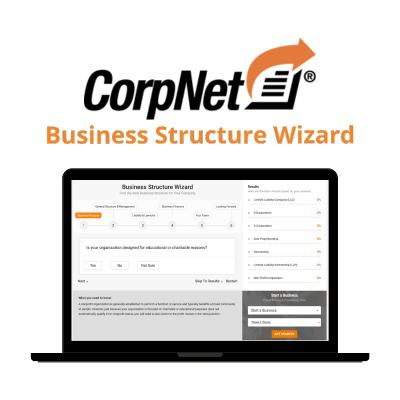If you’ve been intrigued by the flexibility and income potential of selling online, starting an Amazon business is probably at the top of your to-do list. There’s no denying Amazon’s reach and reputation, which is why so many Americans have a strong pull toward launching an Amazon store.
If you’re on the fence about jumping into the world of Amazon, these statistics will solidify your plan:
- Amazon receives over 2 billion visits per month
- Amazon sellers can reach customers in over 180 countries
- There are over 300 million active Amazon shoppers worldwide
- Customers complete 28% of their purchases in three minutes or less
Starting a business on Amazon, just like launching any commercial endeavor, comes with many considerations and to-dos. In this article, I’ll discuss many of the things you’ll need to address along the way. Also, I recommend that you get legal and accounting advice from professionals in those disciplines. The information I share here is for general informational purposes. It is not a substitute for professional guidance from an attorney, accountant, or tax advisor.
13 Steps for Launching an Amazon Business
1. Choose a Business Structure
The business entity type you choose will affect how at-risk your personal assets will be if your Amazon business runs into any legal or financial difficulties. While operating as a Sole Proprietorship is low-cost and low-maintenance, it doesn’t provide any personal liability protection for the business owner. The Limited Liability Company, C Corporation, or S Corporation, on the other hand, all keep a company’s assets and obligations separate from those of its owners. So, if a customer sues a business, the owner’s mortgage, cars, retirement funds, etc. usually will not be in jeopardy. A company’s business structure also affects how it is treated from a tax perspective and the ongoing compliance formalities it must fulfill.
2. Designate a Registered Agent
Businesses operating as an LLC or corporation must designate a registered agent in the state(s) where it is registered. A registered agent, which can be an individual or a company, must have a physical address in the state. Its role is to accept “service of process” (important government, legal, and tax notices) on behalf of the business. The designated registered agent must meet the state’s qualifications—including certain office hours from Monday through Friday—to serve in that capacity. Businesses registered in their home state and foreign qualified (registered to conduct business in additional states) can benefit from using a registered agent, like CorpNet, that is authorized to provide its services in all 50 states.
3. Register Your Business
Businesses that form an official business entity (for example, LLC, C Corporation) must file registration paperwork with the state.
- Limited Liability Company (LLC) – Articles of Organization
- C Corporation – Articles of Incorporation
- S Corporation – Limited Liability Companies and C Corporations that choose to be treated as an S Corporation for federal income tax purposes must file IRS Form 2553 to request that special tax election.
Businesses that want to operate as a Sole Proprietor or Partnership, typically do not have to file formation documents. However, they will have to file a DBA (Doing Business As) if the business name will not contain the first and last name of the owner(s). For example, if Gina Montego wants to run her Amazon business under the name of “Gina’s Galactic Gifts Galore” rather than “Gina Montego’s Gifts,” she would need to file a DBA.
The paperwork to register a business may be complicated depending on the business entity type and the state. Entrepreneurs may choose to complete the filing on their own, ask an attorney to handle it, or, to save money and ensure it’s done correctly, use an online business formation service, like CorpNet.
4. Obtain an Employee Identification Number
Most banks will require an Employee Identification Number (EIN) when a business entity opens a business bank account. An EIN is a Federal Tax ID Number that serves as a unique nine-digit number used by the federal government to identify the business as a tax-paying entity. EINs are used for tax filing and other reporting purposes. An EIN is free from the IRS, and business owners may apply for them through the IRS website or by asking CorpNet to complete and submit the EIN application.
5. Open a Business Bank Account
Business owners should maintain careful accounting records and keep their personal and business financial transactions and funds separate. LLCs and corporations that commingle personal and business funds risk losing personal liability protection. Why? If someone sues the business, a court of law may rule that it didn’t take adequate measures to preserve the corporate veil that separates the owner’s personal assets from the liabilities of the company. Opening a bank account and credit card account in the company’s name and using it explicitly for business are essential steps for keeping the line drawn between personal and business activities.
6. Obtain Business Licenses and Permits
The state (and possibly county and local municipality) where you’ve formed your business may require you to obtain licenses and permits to operate your company legally. Also, depending on where your customers live, you may be required to apply for a sales tax permit in those states or local jurisdictions.
In states that have passed Marketplace Facilitator legislation, online marketplaces like Amazon are responsible for calculating, collecting, and remitting sales tax on sales by third-party sellers. Marketplace Facilitator legislation is a set of laws that shifts the sales tax collection and remittance obligations from a third-party seller to the marketplace facilitator. As the marketplace facilitator, Amazon will now be responsible to calculate, collect, remit, and refund state sales tax on sales sold by third-party sellers for transactions destined to states where Marketplace Facilitator and/or Marketplace collection legislation is enacted. In certain states, local taxes are not included within Marketplace Facilitator Legislation; Amazon is not responsible for those taxes.
Here are some key points about Marketplace Facilitator compliance:
- When selling taxable products to customers in any state that doesn’t have Marketplace Facilitator laws, the seller is responsible for registering with the state tax bureau, calculating, collecting, and remitting sales tax if it has either economic nexus or a physical presence there. Visit our State-by-State Guide to Economic Nexus to learn more.
- States’ revenue thresholds that determine economic nexus vary. For example, Mississippi’s economic nexus threshold is when a remote seller’s gross sales exceed $250,000 in a 12-month period. Whereas, Louisiana’s threshold is when gross revenue exceeds $100,000 or the business has 200 or more separate transactions.
- If an individual or business entity buys a taxable product from outside of its taxing jurisdiction and the seller did not collect sales tax, the buyer must report and pay a use tax for the storage, use, or consumption of that item.
Sales tax is a tricky matter, and state laws and Amazon’s policies and procedures are subject to change. For those reasons, it’s critical to get tax and legal professionals’ expert guidance. That will help you stay compliant with the laws and meet any sales tax permit requirements before you start an Amazon business.
7. Sign Up and Select an Amazon Seller Subscription Plan
Establish an Amazon Seller account and choose the selling plan you want.
Amazon offers two seller plans:
- Individual Plan – You pay $99 per item that you sell.
- Professional Plan – You pay $39.99 per month (no matter how many items you sell).
Amazon also applies a referral fee on each sale. The referral fee amount varies according to the product category and is calculated as a percentage of the total transaction. For most product categories, there’s a minimum referral fee of $0.30.
Amazon recommends the Professional plan for business owners that intend to sell more than 40 items per month.
The Amazon Professional plan Ioffers many features and tools not available with the Individual plan, including:
- Broader range of product categories
- Additional capabilities for building our brand and product content
- Reports
- API integration
- On-site advertising tools
- Ability to run promotions
- Option to have multiple users (administrators)
8. Choose Your Preferred Fulfillment Method
As an Amazon seller, you have two options for getting your products into your customers’ hands:
- Fulfillment by Amazon (FBA)
- Amazon automatically enrolls sellers in FBA at no charge. If sellers want to use the service, they send their inventory to the Amazon fulfillment center. After that, Amazon will handle the packing, shipping, customer service, refunds, and returns.
- Sellers do not have to commit to maintaining a minimum number of units in inventory at Amazon’s fulfillment center, and there is no obligation to use the service
- The costs for shipping done through FBA vary by package size and weight.
- Fulfillment by Seller
- Rather than (or in addition to) FBA, you may instead handle packing and shipping of products yourself. Sellers subscribed to Amazon’s Professional plan set their own shipping rates (with some exceptions). Sellers on the Individual plan must use Amazon’s “Fulfillment by Seller” shipping rates for all products
- The fulfillment by seller option may be a good choice for businesses with fulfillment processes in place or that wish to have closer control over packing and shipping costs for products with tight margins.
- If you’ve thought about using dropshipping (enlisting a third-party to fulfill orders on your behalf), know that Amazon has some strict rules for that practice. Sellers should read the terms and conditions of their sellers’ agreement and review Amazon’s policies to ensure they know what to do to comply. Failing to follow the rules could mean losing the privilege to sell on Amazon.
You can use one or a combination of these methods.
9. Determine Your Pricing
Pricing products so that they’re attractive to buyers and profitable for your company is a careful balancing act.
Among the factors to consider when pricing your Amazon products, consider the following:
- Product material costs
- Inbound shipping of products
- Amazon Seller subscription fees
- Amazon referral fees
- Inventory storage (applies only to FBA items)
- Inventory surcharge fees for aged inventory or removals (applies only to FBA items)
- Outbound fulfillment costs
- Ongoing office expenses
- Marketing and Amazon PPC expenses
- Cost of customer returns (unusable inventory and Amazon refund administration fee)
Review Amazon’s Pricing section of its website to learn more about how to price products effectively.
10. Add Your Products to the Amazon Marketplace
The product, the category, and the brand affect what businesses may sell on Amazon. Amazon opens some product categories to all sellers, however, some are restricted products that require a Professional Seller subscription or pre-approval by Amazon before listing products in the category.
Amazon has an intellectual property policy to ensure businesses don’t violate copyrights, trademarks, and patents. For example, only if the seller is the legal owner of the brand or an authorized reseller may it sell branded products protected by copyright, trademark, or patent.
Before you can begin making sales, you must add your products to Amazon’s e-commerce website:
- Create product listings in Seller Central
- A product identifier (such as a UPC)
- SKU (for tracking your inventory)
- Offer details (e.g., price, product condition, available quantity, shipping options)
- Product highlights
- Product description
- Product images
- Keywords and search terms to allow buyers to find products on Amazon
- Build or ask Amazon to review and update product detail pages
- A product detail page is where customers can find the information they want to know about a specific item.
- When multiple sellers offer the same item, Amazon provides the information on a single product detail page.
- When a company has a registered trademark, Amazon offers a free Brand Registry service that gives sellers more control over the product detail pages on which their products appear.
11. Attract Buyers
Even with Amazon’s powerful position in e-commerce, sellers need to put forth marketing efforts to attract customers. Setting up targeted keywords in product listings helps improve visibility online, and writing compelling product descriptions can help generate sales. Many sellers now offer fast shipping as a competitive differentiator.
Sellers may also take advantage of Amazon’s advertising solutions, which include:
- Sponsored Products – Ads on Amazon (in the shopping results and product detail pages) for individual product listings
- Sponsored Brands – Ads on Amazon (in the shopping results pages) that feature your brand logo, custom headline, and a selection of your products
- Stores – Custom pages on Amazon that give you a way to create your own branded store website page
- Sponsored Display – A self-service advertising solution that enables you to place ads on and off Amazon
12. Grow Your Amazon Business
Knowing the basics of how to start an Amazon business is essential. Also, pay attention to what it takes to grow and succeed. Make sure that you provide buyers with the exceptional quality, value, and service they expect. Better yet, exceed their expectations when possible! Customers will leave reviews of your products and company—and potential buyers will read those reviews when deciding whether to order from you or a different seller. Focus on putting your best foot forward at all times to help ensure you earn the positive reviews that will give prospective buyers confidence in your company.
13. Stay on Top of Your Business Compliance Responsibilities
After starting your Amazon business, you will have ongoing business compliance obligations to fulfill. A company’s responsibilities depend on the business entity type, location, industry, types of products, and other specifics.
Some examples of ongoing compliance include:
- Paying and reporting income taxes
- Paying and reporting sales tax
- Maintaining a registered agent
- Renewing a DBA
- Renewing licenses and permits
- Holding LLC member or corporate shareholder meetings and recording minutes
- Filing Articles of Amendment when there are major changes in the company
- Filing annual reports
If a business does not complete compliance requirements on time, it could face fines, penalties, and even suspension or administrative dissolution (closing of the business by the state). Consider using CorpNet’s free Compliance Portal to track your business compliance deadlines. Our compliance tool, along with guidance from your attorney and tax advisor, can help ensure you know what to do and when you must do it.
CorpNet Can Help You!
After you’ve consulted with your attorney and tax advisor about starting your Amazon business, talk with CorpNet. We can help you with the formation filings and applications required to launch your company. Save time and reduce attorney costs by letting us handle your business registration forms, serve as your registered agent, request your EIN, submit your business license and tax permit applications, and more. With us as your partner, you can rest assured your critical business filings will be prepared and filed accurately, quickly, and affordably.

Choosing a business structure can be a tough decision for the new business owner. CorpNet wants to make the process easier.
This free, online tool helps small business owners navigate the process of picking the right business structure for their new business.





